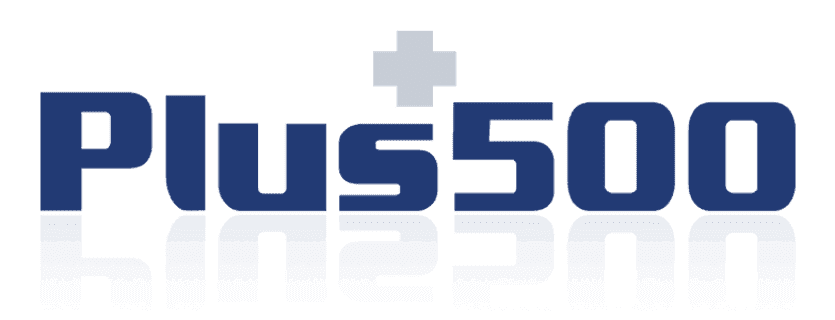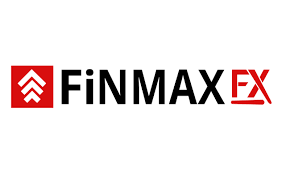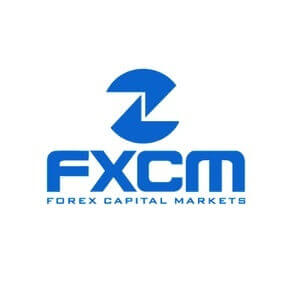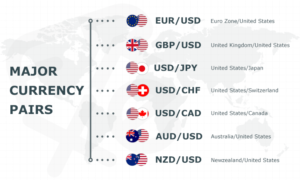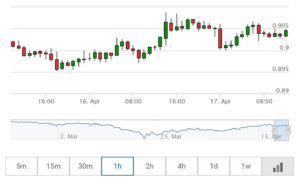Best Australia Forex Brokers for 2026
Forex offers an exciting opportunity for many traders. There are dozens of different currency pairs to trade, the market is highly liquid, and prices can change rapidly. But do you know which Australia forex brokers are best for you?
In this guide, we’ll highlight the best Australian forex brokers that you can get started with today. We’ll also explain what you need to look for when choosing a forex broker so you can decide which platform is right for you.
-
-
What is a Forex Broker?
Forex brokers are firms or companies that provide a platform through which currency traders can access the international forex exchange markets. They may be independent retail forex brokers advancing their services to smallholder currency traders or large investment banks that offer the service to institutional investors like hedge funds or smaller commercial banks.
By providing the trading platform, a forex broker makes it possible for the currency trader to open and close currency trades. Most are online-based and integrate all the important resources needed to help the trader make informed trade decisions within this trading platform. These include trade/market analysis, technical indicators, real updates on market data, financial news (Economic calendar), leverage, and adequate risk management tools.
A forex broker earns in either of these two ways – or both. First is the bid-ask spread of every currency pair traded on their platform. There is no standard spread for Australia forex brokers, and it varies from one platform to another. Secondly, forex brokers may impose a fixed or variable commission (fee) for every trade executed on their platform.
What Makes a Good Forex Broker?
When vetting different forex brokers, you have to take into account a host of security, operational, and regulatory measures. The bare minimum qualifications for a good forex broker include:
Regulation: A good broker is adequately licensed by different regulatory authorities and adheres to all the security measures stipulated by the operating license. These include encrypting user data and maintaining segregated bank accounts for client funds.
Advanced trading platform: A good forex broker should also work consistently towards improving their trading platform. They should include updated trading, market analysis, and risk management tools while maintaining the fastest order execution speeds and supporting a reasonable number of currency pairs.
Considerate pricing model: The good forex broker must also be considerate with their fees. In the recent past, most brokers have abolished trade commissions and lowered their bid-ask spreads.
Readily accessible: Registering a trading account with a good forex broker should also be easy and straightforward. They should also make it possible to access the account on multiple devices like web trader, desktop and mobile apps on both proprietary and conventional trading platforms like MT4/5.
What are the Pros and Cons of Australia Forex Brokers?
Pros:
- Avenue for market access: Forex brokers act as a crucial interlink between you and the larger forex exchange market
- Free trading/analysis tools: Every broker presents you with a wide range of both basic and premium trading, market analysis, and risk management tools
- Support leverage trading: Forex brokers support leverage trading making it possible for you to enter into large positions while risking minimal capital
- Protect you from fraud: By trading through licensed and regulated exchanges, you can avoid the numerous online forex trading scams
- Provide training and support: Some brokers provide you with educational and training resources as well as demo account to help you perfect your skills
- Updates you on market conditions: Most forex brokers have an economic calendar and finance news pinned within the trading platforms
Cons:
- Exorbitant charges: Some demand exorbitant minimum initial deposits while others have high trading fees
- Poor platforms lose you money: Poorly maintained and sluggish forex trading platforms tend to lose you money through slippage
- No deposit protection: Some brokers employ minimal risk management measures exposing you to huge losses
Best Australian Forex Brokers
Trading forex successfully requires that you have the right broker. Trading is about more than just trade execution, after all. You need research and analysis tools to help you find profitable opportunities and the widest possible selection of currencies to trade, and you’ll also want low fees.
With that in mind, here are the three best Australia forex brokers for 2026
1. Plus500 - Best for Leveraged Forex Trading
Plus500 has a lot of things going for it as a broker for Australian forex traders. To start, the brokerage lets you trade CFDs for any of 70 forex pairs, eight of which involve the Australian Dollar. That includes not only all of the major and minor currency pairs but also a handful of exotic currency pairs that are less frequently traded.
Even better, trading forex CFDs with Plus500 is inexpensive. This brokerage has some of the lowest spreads we’ve seen anywhere. For example, the USD/AUD spread is set at around 0.1%. That means you’ll pay half or less per forex trade with Plus500 as you would with just about any other major online broker.
As if that weren’t enough, Plus500 offers excellent margin for leveraged forex trading. Major and minor currency pairs trade with leverage up to 300:1, while exotic pairs trade with leverage of 200:1. The platform’s margins are attractive; the maintenance margin is just 0.25% on the money you borrow to trade on leverage, meaning that you can create some very large forex positions with relatively little money in your account.
The only thing we don’t love about Plus500 is that the brokerage skimps on research and analysis tools. This isn’t entirely surprising, since the platform has to cut back somewhere to offer such low spreads. Plus500 has only very limited charting capabilities and doesn’t provide access to analyst reports or other useful trading resources.
- Currency Pairs: 70
- Demo Account: Yes
- Trade Commissions: No
- Research Tools: Basic charts
- Minimum Deposit: $100
Our Rating
- Exotic Forex Pairs: Trade CFDs for any of 70 currency pairs
- Tight Spreads: Pay 0.1% for major currency trades
- High Leverage: Up to 300:1 for major currency pairs
- Limited Research Tools: Only basic charting and no analyst reports
80.5% of retail investor accounts lose money when trading CFDs with this provider.2. AvaTrade - Best for Trading Forex Options
AvaTrade offers CFD trading for 55 currency pairs, of which seven are pairs involving the Australian Dollar, but this brokerage stands out because it offers something that many of the other best forex brokers in Australia do not; forex options trading.
With forex options, you can buy contracts to speculate on when a price change will take place in addition to speculating on whether it will take place at all. You can also buy puts on calls on multiple timeframes to develop hedged strategies that simply aren’t possible with CFDs. Options trading is available for 42 currency pairs, including all of the major and minor forex pairs.
This brokerage is also a good choice if you want to trade with leverage. You can trade major and minor currency pairs at leverage up to 400:1 for CFD trading, and nearly all options positions can be traded on leverage of up to 100:1. Maintenance margin is just 0.25% for CFD trading, although it’s in the range of 1-5% for leveraged options trades. So, creating highly leveraged forex options positions with AvaTrade does require keeping a substantial amount of money in your account.
One added bonus to AvaTrade for forex trading in Australia is that it comes with access to MetaTrader 4. This charting software is extremely comprehensive and beloved by forex traders. It’s packed with more than 100 technical studies and enables you to build your own custom trading strategy and to automate it. AvaTrade also has its own proprietary charting software, which is very good and a bit easier to get started with than MetaTrader.
- Currency Pairs: 55 (42 for options trading)
- Demo Account: Yes
- Trade Commissions: No
- Research Tools: Advanced charts, MetaTrader 4
- Minimum Deposit: $100
Our Rating
- Forex Options: Trade basic options for 42 currency pairs
- High Leverage: Up to 400:1 for CFD trading and 100:1 for options trading
- Advanced Charting: Includes access to MetaTrader 4
- High Maintenance: Leveraged options trading requires a large balance
There is no guarantee you will make money with this provider3. FinmaxFX – Best MT5 trading platform
FinmaxFX accounts trade on the highly advanced MetaTrader 5 platform, providing access to a range of advanced trading tools, and you can choose either the desktop or mobile platform.
Here, forex traders don't just get access to close to 58 currency pairs but are also free to apply leverages of up to 1:200. However, with spreads starting from 3 pips, FinmaxFX is one of the more expensive forex brokers in Australia.
Registering a forex trading account with FinmaxFX is relatively easy and only requires a minimum initial deposit of $100. You get to interact with some of the most advanced indicators, 250+ trade and market analysis tools, weekly educational webinars, and premium risk management measures and negative balance protection.
- Currency Pairs: 58
- Demo Account: Yes
- Trade Commissions: No
- Research Tools: MetaTrader 5
- Minimum Deposit: $250
Our Rating
- Good Range of Assets: Close to 60 Forex Pairs
- Education: Weekly live webinar
- Regulation: FinmaxFX isn't ASIC-regulated
- High Spreads: Starting from 3 pips
There is no guarantee you will make money with this provider.4. FXCM - Best For No Banking Fees
FXCM, also known as Forex Capital Market, was established in 1999 and is one of the pioneers in the Forex CFD trading niche. It has a solid reputation for its transparent fees, fast order execution speeds, and competitive trading fees. The broker is highly regulated by several tier-one financial authorities like FCA in the UK, ASIC in Australis, America's CFTC, and CySEC in Cyprus.
Registering and verifying a forex trading account with the broker is easy. And the account is accessible via two of the most sophisticated trading platforms; FXCM's proprietary trading platform – TradeStation – and the all popular MT4.
The broker platforms feature hundreds of advanced trading and market analysis tools, give you real access to the forex market data, updated economic calendar, critical market news, and a demo account to practice and perfect your strategy. FXCM does not charge trade commissions or deposit or withdrawal processing fees.
- Currency Pairs: 59
- Demo Account: Yes
- Trade Commissions: No
- Research Tools: MetaTrader 4, NinjaTrader, Trading Station
- Minimum Deposit: $250
Our Rating
- Regulation: Holds ASIC, FCA, CySEC licences
- Limited Trading Choice: Less than 40 forex pairs
There is no guarantee you will make money with this provider.How to Choose the Best Australia Forex Broker
Choosing the right broker is one of the biggest decisions that every new Australian forex trader faces, as it impacts everything from what currencies you’ll be able to trade to the research tools at your disposal to how much you’ll pay in fees on every trade. So, let’s take a closer look at some of the factors you need to consider when deciding which the Australia forex broker is right for you.
Currency Pairs
The best place to start when choosing a forex broker is to look at the currency pairs any brokerage offers. Forex trading is usually categorized into three types of currency pairs:
- Major pairs are the seven most highly traded currencies around the globe. These include the US Dollar-Euro, US Dollar-Pound, US Dollar-Yen, and US Dollar-Australian Dollar. Major currency pairs make up the majority of forex trades placed each day and are offered by almost every forex brokerage.
- Minor pairs are currency crosses that pair the US Dollar with lesser traded currencies or that pair the world’s major currencies without the US Dollar. For example, the Australian Dollar-Euro and Australian Dollar-Pound are minor currency pairs. There are between 20 and 50 of these, depending on what trader you ask, and most minor pairs are offered by forex brokers in Australia.
- Exotic pairs are crosses between infrequently traded currencies. These may be significantly less liquid than major and minor currency pairs, and not all exotic forex pairs are offered by every brokerage.
When considering which brokerage is right for you, think about whether you’ll primarily be trading major and minor forex pairs or whether you want to specialize in trading exotics. In addition, note that leverage margins and spreads may vary quite a bit between major and minor pairs at the same brokerage. It’s important to make sure you can get the leverage you need for the currency pair you want to trade.
Asset Type
In contrast to stock and bond trading, forex trading rarely involves buying and selling currency directly. That’s because taking ownership of foreign currency often comes with some banking and regulatory headaches that most traders would rather avoid.
Forex brokerages help you get around this by letting you trade contracts for difference (CFDs). CFDs allow you to speculate on the price of one currency relative to another without ever directly owning either currency. When trading without leverage, your return from trading CFDs is the same as it would be if you owned the currencies themselves.
Some brokerages, like AvaTrade, also offer forex options. Options are different from CFDs in that they have expiration dates associated with them. As a result, when trading options, you need to be right about the timing of a price change as well as the price change itself. Options trading opens up much more strategic flexibility compared to CFD trading, since you can buy competing put and call options that cover multiple different timeframes.
Leverage
Different brokers offer different ranges of leverage. This is often due to licensing restrictions and the country from which you’re trading. For example, while UK-based Plus500 offers leverage of up to 300:1, AvaTrader users situated outside the European Union can trade forex with leverage of up to 400:1.
While leverage can be a useful tool, you should always make sure you’re aware of the risks and use it with caution – don’t trade more than you can afford to lose.
Research Tools
For many traders, your broker is also your go-to platform for forex research. So, it’s essential that you make sure that the brokerage you choose has the tools you need to find opportunities and to trade them profitably.
The most important tool that most Australia forex brokers offer is technical charting. Some brokerages, like Plus500, have built-in charting software that caters more to entry-level traders. These charts may be user-friendly and easy to read, but they lack the depth of technical studies and customization that many advanced traders demand. On the other hand, AvaTrade and some other brokers offer access to MetaTrader 4, an extremely comprehensive charting software that’s built for experienced traders.
Another research tool to consider is social trading. While this isn’t traditional research, discussion boards and access to view other traders’ portfolios can give you a glimpse into market sentiment.
Some Australian forex brokers offer additional research tools, such as news feeds and analyst reports. It’s up to you to decide what research tools are most important to you so that you can get the most out of your forex trading.
Commissions and Fees
Finally, before you commit to a forex broker, it’s important to take a look at their fees. The three brokerages that we recommended do not charge trade commissions, although many traditional and online brokers do. It’s a good idea to avoid trade commissions whenever possible, as they can quickly add up.
That doesn’t mean that trading is free, though. All brokers, including the ones that charge trade commissions, make money on the spread, which is the price difference between the buy and sell price of an asset. This may be as low as 0.1% per trade as for Plus500 or as high as 0.5% per trade. It also likely varies between currency pairs at the same brokerage, so make sure to compare spreads for the forex pairs you’re most likely to trade.
It’s also important to check for any other fees your brokerage may charge. Some Australian forex brokers charge for withdrawals from your account, while others charge a fee if you do not place at least one trade every three months. These fees can quickly add up depending on how you use your brokerage account.
Conclusion
Forex trading offers plenty of opportunities for profit, but taking advantage of those opportunities requires having the right broker for the job. Forex brokers can differ widely in what currency pairs they offer for trading, how they let you trade those currency pairs, and how much they charge for every trade. Thanks to our review of the top forex brokers reviews, you can better decide which brokerage is right for your trading needs and get started trading currencies today.
References
To ensure we bring you the most reliable and accurate information possible, our writers use primary sources to support their content. These include studies, government resources and commentary from industry experts.
- Moneysmart.gov.au. “Forex Trading, https://moneysmart.gov.au/investment-warnings/forex-trading“, Accessed March 3, 2021.
- Reserve Bank of Australia. “Electronic Trading and the Australian Foreign Exchange Market, https://www.rba.gov.au/publications/bulletin/2011/jun/6.html“, Accessed March 3, 2021.
FAQs
Do I have to trade Australian Dollars if my account is funded with them?
No, you can trade any currency pair your brokerage offers even if your account is funded with Australian Dollars. This is one of the advantages of trading CFDs, which can be priced in any currency.
Can I profit if a currency declines in value when trading with CFDs?
Yes, you can speculate against a currency when trading CFDs. In this case, you will want to buy CFDs for a forex pair in which the currency you believe will decline in value is on the other side of the pair from your trade.
Do CFD contracts expire?
CFD contracts typically expire at the end of each month. But, you don’t have to worry much about this since Australian forex brokers automatically roll over your CFDs into new contracts. Options, on the other hand, have hard expiration dates and will not be rolled over.
Do I have to trade with leverage when trading forex CFDs or options?
While you have the option of trading with leverage when buying forex CFDs and options, you don’t have to use leverage. Leverage increases the effective size of your position, so it multiplies both your risk and your potential return. Importantly, if you hold a leveraged position overnight, your brokerage will charge you interest on the money you are borrowing for your position.
How much money do I need to get started with forex trading?
It’s a good idea to have several hundred dollars available to start forex trading. You need to cover your broker’s minimum deposit, plus satisfy any margin requirement if you plan to trade with leverage. Forex price changes are often very small, so generating significant returns may require a large, leveraged position.
Haydn Squibb
Haydn Squibb
A journalist, with experience writing across the UK financial and professional service sector. Haydn holds a degree in Media Writing and enjoys covering about a wide range of topics from financial markets and current affairs to home, health and lifestyle. Haydn's work has been published on a number of top tier websites.View all posts by Haydn SquibbWARNING: The content on this site should not be considered investment advice and we are not authorised to provide investment advice. Nothing on this website is an endorsement or recommendation of a particular trading strategy or investment decision. The information on this website is general in nature, so you must consider the information in light of your objectives, financial situation and needs. Investing is speculative. When investing your capital is at risk. This site is not intended for use in jurisdictions in which the trading or investments described are prohibited and should only be used by such persons and in such ways as are legally permitted. Your investment may not qualify for investor protection in your country or state of residence, so please conduct your own due diligence or obtain advice where necessary. This website is free for you to use but we may receive a commission from the companies we feature on this site.
Copyright © 2022 | Learnbonds.com
We use cookies to ensure that we give you the best experience on our website. If you continue to use this site we will assume that you are happy with it.Scroll Up

